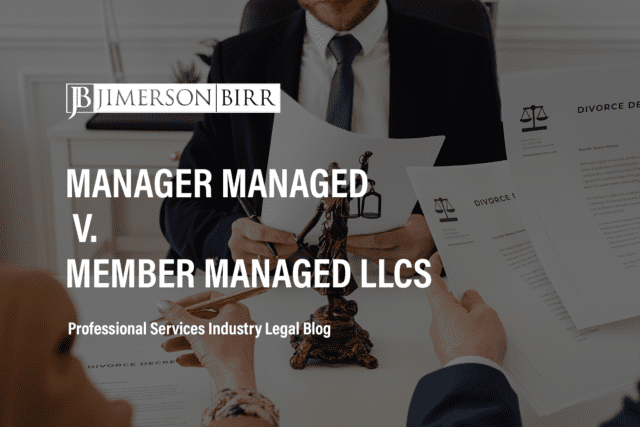What do conflicts of interest and related party transactions entail?
Conflicts of interest refer to a situation where a corporate executive or board member has a personal or financial interest that may compromise their ability to make impartial decisions in the corporation’s best interest. Related party transactions are business deals or arrangements between two parties with pre-existing relationships, such as transactions between a corporation and its subsidiaries or between the corporation and its executives.
One example of when counsel is required is when a board member has a financial stake in a company seeking to do business with the corporation, which could influence the board member’s decision-making. Another example is when a corporate executive is related to a vendor or service provider, and their relationship could potentially compromise the integrity of the transaction.
Need help with a matter related to conflicts of interest and related party transactions? Schedule your consultation today with a top corporate and board of directors governance and operations attorney.
Which Florida and federal laws and regulations apply to conflicts of interest and related party transactions?
In Florida, several laws and regulations address conflicts of interest and related party transactions for corporate governance and board of directors operations. For example, the Florida Business Corporation Act (FBCA) governs corporations and outlines provisions related to directors’ duties, conflicts of interest, and related party transactions. Similarly, the Florida Revised Limited Liability Company Act (FRLLCA) provides guidelines for managing conflicts of interest and related party transactions within LLCs.
Additionally, the Florida Not-For-Profit Corporation Act covers conflicts of interest and related party transactions for non-profit organizations.
At the federal level, the Sarbanes-Oxley Act of 2002 sets requirements for public companies regarding disclosure and approval of related party transactions. The Securities and Exchange Commission also has regulations governing the disclosure of related party transactions for public companies.
What are common issues regarding conflicts of interest and related party transactions that lead to litigation?
The following issues are among the most common in litigation involving conflicts of interest and related party transactions:
- Breach of Fiduciary Duty: Directors and officers of corporations have a fiduciary duty to act in the corporation’s and its shareholders’ best interest. Conflicts of interest can lead to claims of breached fiduciary duties when an individual’s interests interfere with their professional responsibilities.
- Lack of Transparency: Inadequate disclosure of conflicts of interest or related party transactions can result in shareholder claims or regulatory action.
- Unfair Business Practices: When a company engages in transactions that benefit certain parties at the expense of others, such as favoring one shareholder over another, it can lead to litigation.
- Violations of Corporate Governance Rules: Corporate governance guidelines often address conflicts of interest and related party transactions. Failure to follow these guidelines can result in legal disputes.
- Insider Trading: Conflicts of interest can lead to allegations of insider trading when a corporate executive or director uses non-public information for personal gain.
What measures can minimize the risk of litigation over conflicts of interest and related party transactions?
Implementing the following strategies may help mitigate risk:
- Establish Clear Policies and Procedures: Develop written guidelines for identifying, disclosing, and managing conflicts of interest and related party transactions.
- Implement a Robust Disclosure Process: Ensure all conflicts of interest and related party transactions are disclosed promptly and accurately to the appropriate parties, including shareholders and regulators.
- Conduct Regular Training: Educate directors, officers, and employees about their fiduciary duties and avoid conflicts of interest.
- Establish a Conflict Resolution Process: Implement a process for resolving conflicts of interest and related party transactions, including an independent review and approval mechanism.
- Conduct Regular Reviews and Audits: Periodically review and audit policies, procedures, and transactions to identify and address potential conflicts of interest and related party transactions.
- Seek Legal Counsel: Engage legal counsel to review corporate governance practices, policies, and procedures to ensure compliance with relevant laws and regulations.
When a set of facts is appropriate to meet litigation requirements, there are many paths a claimant may take. We are value-based attorneys at Jimerson Birr, which means we look at each action with our clients from the point of view of costs and benefits while reducing liability. Then, based on our client’s objectives, we chart a path to seek appropriate remedies.
To determine whether your unique situation may necessitate litigation, please contact our office to set up your initial consultation.
What strategies implement safeguards against conflicts of interest and related party transactions effectively?
Based on the circumstances, the following strategies may be impactful:
- Develop Comprehensive Policies: Create and implement clear policies addressing conflicts of interest and related party transactions, specifying the procedures for identifying, disclosing, and managing such situations.
- Establish an Oversight Committee: Form a dedicated committee, such as an audit or ethics committee, to monitor and review potential conflicts of interest and related party transactions.
- Conduct Due Diligence: Thoroughly investigate potential conflicts of interest and related party transactions before approval, ensuring that the dealing is fair and in the organization’s best interest.
- Implement a Disclosure System: Encourage employees, directors, and officers to disclose potential conflicts of interest and related party transactions, creating an open and transparent environment.
- Offer Regular Training: Provide ongoing education and training on conflicts of interest and related party transactions to keep employees, directors, and officers informed and aware of their responsibilities.
- Periodic Audits And Reviews: Conduct regular internal and external audits and reviews to ensure compliance with conflicts of interest and related party transaction policies and procedures.
Frequently Asked Questions
- What is considered a conflict of interest in the context of corporate governance?
A conflict of interest arises when a director, officer, or employee has a personal interest that could interfere with their ability to act in the corporation’s or organization’s best interest.
2. What are some examples of related party transactions?
Related party transactions occur when a company enters into a business arrangement with an entity that has a close relationship with the company, such as a significant shareholder, director, officer, or family member.
3. How can potential conflicts of interest and related party transactions be disclosed?
Individuals with potential conflicts of interest and related party transactions should disclose them through a formal process that includes reporting to a designated person or committee, such as an ethics committee, and maintaining a record of all disclosures. In addition, shareholders should receive regular updates and disclosures; if required, regulatory authorities should also receive these communications.
Have more questions about governance or operations for your business?
Crucially, this overview of conflicts of interest and related party transactions does not begin to cover all the laws implicated by this issue or the factors that may compel the application of such laws. Every case is unique, and the laws can produce different outcomes depending on the individual circumstances.
Jimerson Birr attorneys guide our clients to help make informed decisions while ensuring their rights are respected and protected. Our lawyers are highly trained and experienced in the nuances of the law, so they can accurately interpret statutes and case law and holistically prepare individuals or companies for their legal endeavors. Through this intense personal investment and advocacy, our lawyers will help resolve the issue’s complicated legal problems efficiently and effectively.
Having a Jimerson Birr attorney on your side means securing a team of seasoned, multi-dimensional, cross-functional legal professionals. Whether it is a transaction, an operational issue, a regulatory challenge, or a contested legal predicament that may require court intervention, we remain a tireless advocate every step of the way. Being a value-added law firm means putting the client at the forefront of everything we do. We use our experience to help our clients navigate even the most complex problems and come out the other side triumphant.
If you want to understand your case, the merits of your claim or defense, potential monetary awards, or the amount of exposure you face, you should speak with a qualified Jimerson Birr lawyer. Our experienced team of attorneys is here to help. Call Jimerson Birr at (904) 389-0050 or use the contact form to schedule a consultation.
Here are some blogs written by JB attorneys that provide more information about conflicts of interest and related party transactions:

We live by our 7 Superior Service Commitments
- Conferring Client-Defined Value
- Efficient and Cost-Effective
- Accessibility
- Delivering an Experience While Delivering Results
- Meaningful and Enduring Partnership
- Exceptional Communication Based Upon Listening
- Accountability to Goals











